Michael Mann: Unprecedented Heat, Flooding and Wildfires Are Part of ‘The New Abnormal’
CHEN: “The scorching heat wave in this country is part of alarming global trend. As Phoenix marks its 25th straight day of temperatures above 110 degrees, research shows the entire planet is warming at an accelerated pace. In fact, the 10 warmest years on record have all happened since 2010, including nine years in a row.”
DICKERSON: “Experts say this month is on track to become the hottest month since records started. To help us understand all this, we’re joined by climate scientist Michael Mann, author of the upcoming book ‘Our Fragile Moment: How Lessons from Earth’s Past Can Help Us Survive the Climate Crisis.’ Michael Mann is director of the Penn Center for Science, Sustainability and the Media at the University of Pennsylvania. Good morning, Michael.”
MANN: “Good morning. Great to be with you guys.”
DICKERSON: “Framing the way of looking at the summer that has struck me us people saying it’s hot summer and it’s likely to be the coolest summer that we experience going forward. What does that mean to you?”
MANN: “Yeah, well, it means that’s the trajectory we’re on right now. As we continue to burn fossil fuels, put carbon pollution into the atmosphere, we’re warming the planet. We’re getting a little bit of an extra kick this year from an El Niño event. It’s a natural warming in the Pacific Ocean that actually warms up the whole planet a little bit. So you can think of that as a little extra octane added to the fuel of human-caused warming, and that’s part of why we’re seeing such extreme temperatures, but a big part of it is the fact that the planet is warming and it will continue to warm until we stop dumping carbon pollution into the atmosphere.”
JACOBSON: “It’s more than just it’s summer and it’s hot. And I know a lot of people are saying, ‘Well, it’s our new normal. We’ll just get used to it.’ You say it’s not the new normal. It’s the new abnormal.”
MANN: “Yeah, we call it the new abnormal to convey the fact that first of all, this isn’t normal. If you turn on your television set, read the headlines, we’re seeing unprecedented floods and heat waves and wildfires that are doing real damage now, so dangerous climate change has arrived. And here’s the reason it’s not a new normal. New normal makes it sound like we’ve arrived in a new situation, we just have to figure out — “
JACOBSON: “Right, this should happen anyway, yeah.”
MANN: “Yeah, exactly, we can adapt to it, figure out what to do. But it continues to — it’s a moving baseline. It will continue to get warmer and we will continue to see more extreme weather events if we continue to burn fossil fuels and pollute the atmosphere with carbon.”
CHEN: “And as alarming as this all is, it’s not unexpected. Climate scientists have been warning about this for quite some time, but there’s such new urgency for this moment right now. How would you describe where we are right now?”
MANN: “Yeah, so amazingly, climate scientists, including James Hansen here in New York City, NASA Goddard Institute for Space Studies, which sits on top of Tom’s Diner of ‘Seinfeld’ fame, decades ago, he made a prediction of how much warming we would see if we continue to burn fossil fuels at historical rates, and his prediction was right on. The predictions were right on. So here’s what I say to people. The truth is bad enough. We’re not in a runaway warming scenario. We’re not at a tipping point with the climate. We’re pretty much where the model said we should be when it comes to the overall warming of the planet, but we’re seeing the impacts of that warming, and some of those impacts are exceeding what the models predicted.”
DICKERSON: “Let me grab that from you. Something like the jet stream, which we all thought worked a certain way, maybe doesn’t work the same way it used to because of climate change?”
MANN: “Yeah, it’s something that our group has actually done some research on. It turns out, to solve this problem, to figure out how global warming influences the jet stream, it involves some of the same math that was developed in the early 1900s to solve problems in quantum mechanics, the behavior of matter at the smallest scale. But what we’re talking about is the behavior of the atmosphere at the global scale. And without going into the details, the pattern of warming of the planet slows down the jet stream, so you get more of these stuck weather patterns that just sit in place day after day, over Phoenix, Arizona or raining in the eastern U.S., and it’s that stuck nature that gives you these extreme heat events, wildfires, floods, and that’s part of the problem. And the climate models haven’t done a great job in capturing that, so some of those impacts are actually worse than the models predicted.”
JACOBSON: “Real quickly, you’ve said that this doesn’t mean there is nothing we can do, and some people are saying, ‘It’s over. I can’t worry about it.’ What can people do? Because it isn’t the end of the road here. There are steps people can take.”
MANN: “That’s right. You know, there’s the urgency, we all see the urgency, it’s playing out in real time now. But there’s agency.
We can still act in time to avert the worst impacts. And there’s a little bit of good news in the science. Over the last decade or so, we’ve learned that if we bring our carbon emissions to zero, the planet actually stops warming up very quickly. So there’s an immediate and direct impact of our efforts to de-carbonize our civilization. But let’s not be Pollyannaish about this. We’ve got to bring carbon emissions down by 50% by 2030, all the way down to zero by the middle of this century if we are to avert catastrophic three degrees Fahrenheit warming. What’s the most important thing we can do? Use our voice, vote for climate advocates. Do everything we can to put pressure on policymakers to make the decisions to do the things that we can’t do ourselves, that will help de-carbonize.”
JACOBSON: “And still take some of those small steps you say that you can do on your own.”
MANN: “Absolutely.”
JACOBSON: “Michael, thank you very much. We appreciate the insight.”
-
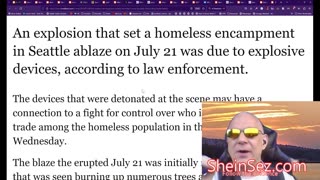 1:04:01
1:04:01
SheinSez
10 months ago‘Man-Made’ Climate Change: Majority of Greek Wildfires Result of Arson-SheinSez 245
960 -
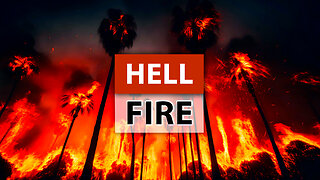 9:26
9:26
Creative Society
9 months agoWHY Do Uncontrolled WILDFIRES & Floods Occur?
3.58K2 -
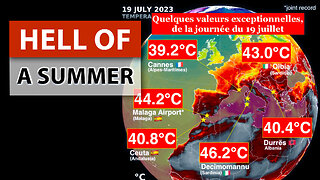 6:51
6:51
Creative Society
10 months agoPlanetary Heatwave: Tragic Heat-Related Casualties In Europe. Wildfires in Canada & Türkiye
1.44K8 -
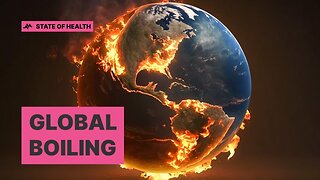 3:31
3:31
Oppenheimer Ranch Project
9 months agoIs This a Climate Emergency? These Horrific Weather Events from Long Ago Tell the True Story
4.13K7 -
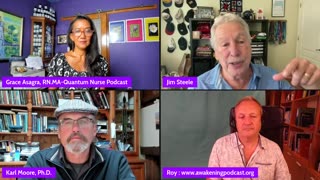 1:32:13
1:32:13
Awakening
5 months agoThe Wild Fires Crisis is not a Global Warming Crisis - Jim Steele ( #275)
198 -
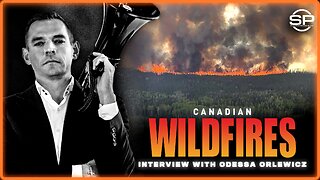 15:13
15:13
Stew Peters Network
11 months agoUnexplained Wildfires SCORCH Canada: Lying Media Push Climate Change Hoax As Smoke Covers Northeast
31.5K83 -
 6:26
6:26
Nutmeg328
9 months agoMaui Wildfires and the Theft of Sacred Hawaiian Land
3764 -
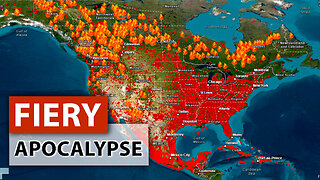 9:56
9:56
Creative Society
9 months agoWe Have Been WARNED. This is the Last Summer Before the Inevitable — Global Wildfires are Proof
3.08K5 -
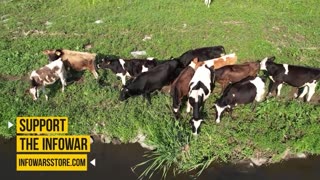 6:26
6:26
The Information War
9 months agoMaui Wildfires and the Theft of Sacred Hawaiian Land
2.27K3 -
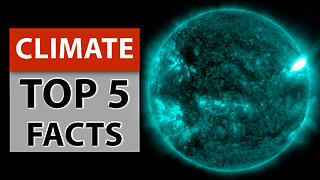 9:00
9:00
Creative Society
10 months agoCatastrophic July: The Most Powerful Solar Flare In 20 Years & 10 Devastating Floods
1.55K4